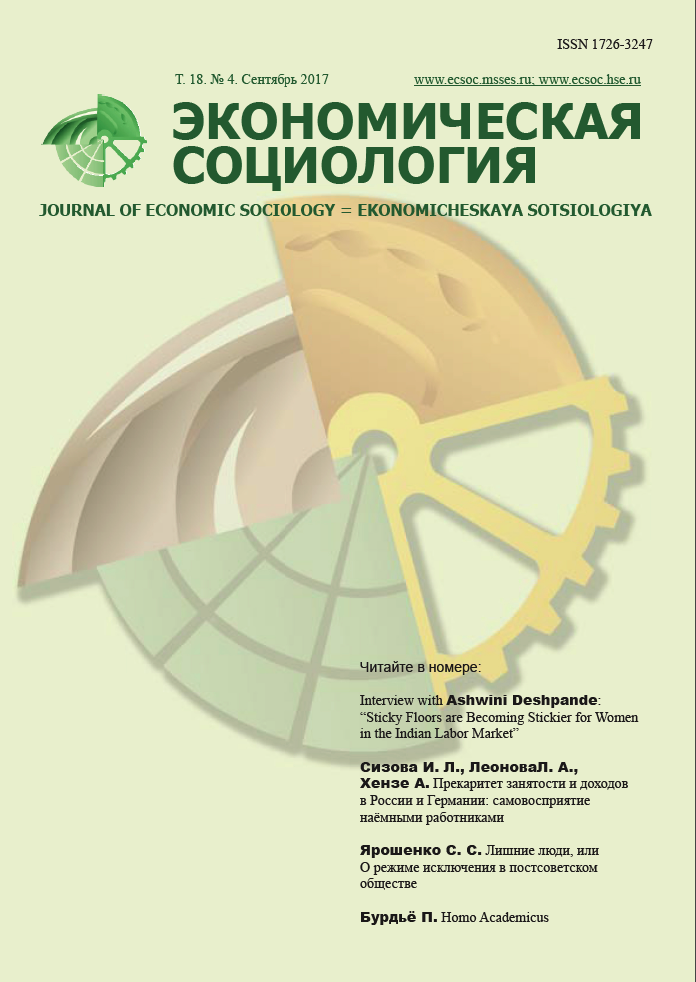The Reasons for Conflicting Results on the Relationship between Objective and Subjective Well-Being
Abstract
The results known in academic literature as the Easterlin paradox state that economic growth does not have any significant effect on happiness in a society in the long term (more than 10 years). These results became a trigger for the subsequent discussion about the gap between objective and subjective measures of well-being. In particular, there is still no consensus on the explanatory mechanism underlying the relationship between objective and subjective well-being. The analysis of transition economies and developing countries gives inconsistent and contradictory results. In this paper, I consider not only the original interpretation of the Easterlin paradox that is true only for the aggregated national level. This paper traces the discussion about the gap between objective and subjective well-being on both national and individual levels. This study aims to define relevant research strategies that explain why the inferences about the relationship between economic well-being and its perception are inconsistent. At the beginning of the paper, I address the origins of the academic discussion on subjective well-being and explain why different disciplines study subjective well-being. The following part of the paper describes briefly the key stages of the discussion to expose the main arguments. The review of key studies allows me to find the obstacles to reaching the consensus on the type of relationship between objective and subjective well-being. In the final part, the author reflects on the research strategies that explain why the effect of economic indicators on subjective well-being varies in different studies.













